Porn Discounts Sex Games Porn Games Juegos XXX Hentai Games PornStar Games 3D Porn Tantaly Sex Doll Cupsland Sextoy Live Cams DeepNude AI
Live Sex Free Live Sex Free Sex Games Páginas Porno Rose Toy Free OnlyFans Celebrity Fappening Celebrity Sex Videos TikTok Porn Best OnlyFans
Live Sex Free Live Sex Free Sex Games Páginas Porno Rose Toy Free OnlyFans Celebrity Fappening Celebrity Sex Videos TikTok Porn Best OnlyFans
Published on 2024/09/24
HOW LOS ANGELES AND HOLLYWOOD REFLECT THE DECAY OF THEIR ELITES
Los Angeles, once synonymous with glamour, dreams, and fame, is undergoing a critical transformation. Decades ago, the Walk of Fame, Hollywood, and Beverly Hills represented the best of pop culture, cinema, and aspirational living. The city was a global symbol of success, where dreams could come true, and the lifestyle of movie stars was the goal of many.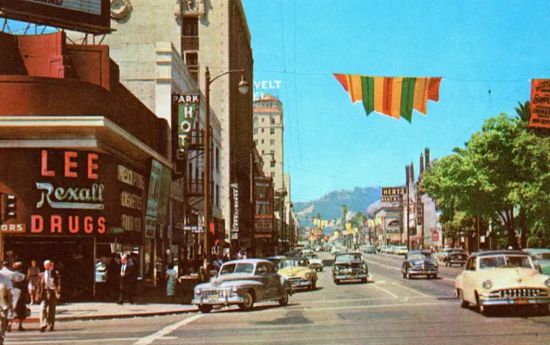
However, today, the landscape of Los Angeles has deteriorated, and what once symbolized glitz and success now evokes images of decay and chaos. In some parts of the city, especially Skid Row, the scene is more reminiscent of an episode of The Walking Dead than the entertainment capital. The homelessness crisis, drug abuse, and lack of effective responses from authorities have transformed the city into a place of despair for many.
The streets of Los Angeles, once filled with tourists eager to see the glamour of Hollywood, are now plagued with homeless encampments and drug addicts. Fentanyl, methamphetamine, and other drugs have invaded the streets, with many people living in extremely precarious conditions. The contrast between the wealthy living in the Hollywood Hills and the growing homeless population is alarming and has turned Los Angeles into a reflection of social inequality and the lack of effective policies to address the problem.
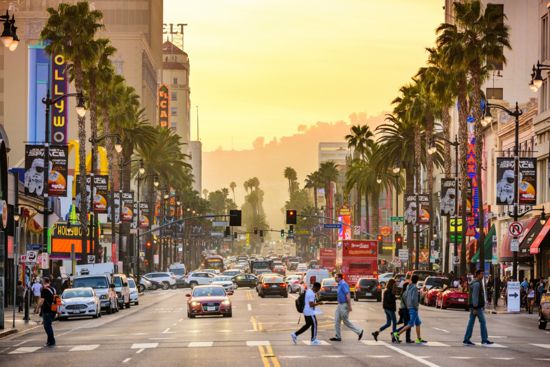
Hollywood and the film industry, once Los Angeles' greatest cultural export, have also changed drastically. Although it remains the mecca of cinema, many current productions are marked by a trend toward "woke" films, dominated by messages of inclusion and social justice. While these causes are important, many recent films seem more focused on imposing an agenda than telling genuine stories. The narratives often feel forced, with characters and plots that don’t always resonate with the audience and, in many cases, are perceived as impositions by minority groups on a majority that doesn’t always identify with these messages.
This "woke culture" has been the subject of criticism from those who feel that cinema has become more of a vehicle for imposing ideologies than a space for entertainment and reflection. Studios seem more interested in meeting certain political correctness standards than in producing creative and authentic stories, leading to a sense of disconnection between Hollywood and much of its global audience.
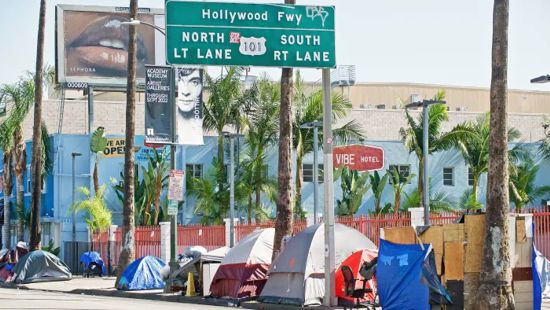
Los Angeles has shifted from a symbol of glamour and dreams to a place marked by inequality, the homelessness crisis, and increasingly politicized cinema. The city is trapped between two realities: the desire to maintain its status as the entertainment capital and the harsh reality of its streets, where the brilliance of the past fades in the face of a darker and more critical panorama.
To connect both—the crisis on the streets of Los Angeles and Hollywood's transformation into a factory of forced messages—it’s essential to understand how the decay of the political and social elites has directly contributed to both issues. The city, once the ultimate symbol of success and creativity, is now spiraling downward as the inaction and disconnect of political and cultural elites allow the situation to worsen.
The homelessness crisis and drug abuse on the streets of Los Angeles are not just the result of poverty or drugs but also of the inaction of local and state politicians. Despite Los Angeles generating immense wealth and being home to some of the richest people in the world, the city is failing to address basic issues of housing, mental health, and addiction treatment. Ineffective policies, empty promises, and corruption have allowed the city to collapse. Money is funneled into projects that don’t offer real solutions, and the root of the problem is rarely taken seriously, allowing Los Angeles to shift from a symbol of luxury and success to an apocalyptic scene in many of its streets.
On the other hand, Hollywood, once the epicenter of creativity and pop culture, is now plagued by political agendas. Studios and creators seem more interested in adhering to a politically correct narrative than in telling authentic stories. This approach isn’t necessarily a response to public demand but rather an imposition by a cultural and political elite that, like the politicians ignoring the crisis on the streets, is disconnected from the real concerns of the majority.
This is where the two issues connect: the social and economic decay of the city and the cultural decay of Hollywood are symptoms of the same disease. Politicians fail to address the fundamental problems of the population, and Hollywood elites impose messages that don’t always reflect the realities and concerns of ordinary people. Instead of using their influence to highlight the real problems facing the city, film and television productions focus on promoting an agenda that often alienates the audience and seems to ignore the social decline happening just outside the studio doors.
The deterioration of Los Angeles and the disconnection of its leaders, both political and cultural, have created a city in crisis. A city where the glamour of the past brutally contrasts with the tents of the homeless, and where movies that once told universal stories now seem more like sermons than artistic expression. Both evils—the social crisis and Hollywood’s shift towards woke cinema—are the result of a ruling class that has lost touch with reality, leaving Los Angeles as a reflection of its own decay.
ExtraBall
Always in the way, like Thursday.
|
➡️ Let's do real, be real with Tantaly, the sex doll torso leader |
ExtraBall2
(Clicking on these links daily you support ALRNCN's work. They're collaborators or sponsors and, by visiting their sites, they like us even more)










THE SPECTACLE OF PRO WRESTLING
POV: Wrestlers don’t actually get hurt. It’s all fake.
Pro Wrestling:

# Watch Videos
ExtraBall
Today's slow-motion highlight.
ExtraBall2
(Clicking on these links daily you support ALRNCN's work. They're collaborators or sponsors and, by visiting their sites, they like us even more)










CHAIN-REACTION CRASH
On the morning of Saturday the 22nd, an incident occurred near the Montparnasse train station in Paris, leaving ten police officers slightly injured. It all started around 5:45 a.m. in the 14th arrondissement, when a driver refused to stop at a police checkpoint. Three police vehicles chased the suspect for several kilometers. Eventually, the fleeing driver lost control and crashed into a traffic light, causing the three police cars to collide with his vehicle—each one separately and at different moments.
The driver and his two passengers also sustained injuries, none life-threatening, and were arrested. Authorities suspect the driver was under the influence of alcohol. And from the footage, you might wonder if the officers behind the wheel had also enjoyed a drink or two.
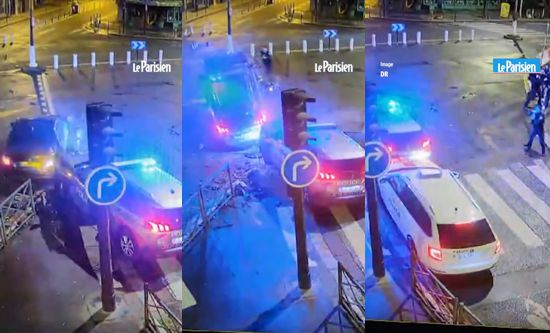
# Watch video
ExtraBall by david
Today's slow-motion highlight.
ExtraBall2
(Clicking on these links daily you support ALRNCN's work. They're collaborators or sponsors and, by visiting their sites, they like us even more)











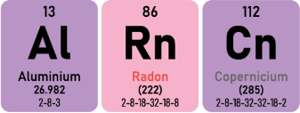














RECOMMENDED SITES
 Add your site
Add your site
- Motherless
- Entensity
- Babes & Bitches
- BoobieBlog
- drunkenstepfather
- Erotic Beauties
- Candid Teens
- celeb-stalker.com
- sweetlicious
 Add your site
Add your sitePorn Discount
💩 CrazyShit
🤪 eFukt
NudeChatGirls
👉🍑 Top XXX Pictures
Bingo Porno
Best Porn Blog Sites
Sex Games
Real Amateur Porn
MrPornGeek
CamBB.xxx
ChatSex.xxx
Comepollas
PornScn Free Porno
AI Girlfriend App
Hardcore Porn Videos

















EMERGENCY ROOM
I swear at the beginning of the video I thought it was a baby's head, and I was like—how can that even happen? Did they have it chained up by a collar inside a cage? How the hell did it end up there? But nope, turns out that's not what it was.

# Watch video
ExtraBall
Immobilization techniques.
ExtraBall2
(Clicking on these links daily you support ALRNCN's work. They're collaborators or sponsors and, by visiting their sites, they like us even more)












THE DRONE WAR
Remember these images. Remember them the next time your president, your flag, or your media tell you it’s time to go defend your country.
Remember them when they talk about honor, patriotism, or distant threats that, magically, can only be solved with blood.
Because these men you see running through the trees, unarmed, hunted down by drones like animals—they had a country too. They had homes. Mothers. Friends. And they probably thought they couldn’t say no.
And here they are: running with no hope, no weapon, no glory. Dying for decisions made in offices that will never see a battlefield. Meanwhile, the ones in charge—the ones who plot these wars of interest, power, geopolitics and money—keep waving their flags with clean hands.
The footage you’re about to watch should be treated for what it is: war crimes. And someone should be held accountable.
Killing unarmed soldiers as they flee is exactly that, according to those international treaties these same bastards once pulled out of their sleeves to look civilized. When it suited them.
This isn’t an epic video. There are no heroes. Only victims of a system that keeps rolling because generations keep swallowing the same lie: that killing and dying for your country is noble. That anything goes if it’s “for the cause.” Even this.

# Watch videos
ExtraBall by david
Today’s slow-motion moment.
ExtraBall2
(Clicking on these links daily you support ALRNCN's work. They're collaborators or sponsors and, by visiting their sites, they like us even more)











Contact
You can tell us whatever you want via email: [email protected]
If you prefer, you can use this contact form:
If you prefer, you can use this contact form:






NARCISSISM AND SOCIALMEDIA VOL31
There’s a new kind of urban wildlife out there—one you won’t see in nature documentaries, but you’ll recognize instantly. They set up their phone on a lamppost, a trash can, or a mini tripod, and then the show begins. Dances, intense stares in the middle of a crosswalk, every move calculated like the whole world’s just waiting for their next TikTok.
We’ve all seen them. And at first, you might try to look away. But eventually, it becomes impossible not to stare—caught somewhere between disbelief and secondhand embarrassment. That moment when they freeze in front of a shop window, pull out their phone, and strike their best angle like they’re the only person on Earth.
And you, the unlucky bystander to this performance, can only do one thing: feel awkward for them. For yourself. For all of us. Because that second when you lock eyes with someone dancing in total silence while their phone records—it sticks with you more than the rest of your walk.
So don’t feel bad if these videos make your soul shrink a little. You’re allowed. This is raw, unfiltered street cringe at its finest.

# Watch videos
ExtraBall
God punished you for being a dirty girl.
ExtraBall2
(Clicking on these links daily you support ALRNCN's work. They're collaborators or sponsors and, by visiting their sites, they like us even more)










NOT MY BUSINESS. ACT LIKE NOTHING HAPPENED
It's not entirely clear what's going on here. It might seem like the police car was chasing the other vehicle, but if you pay close attention, at the beginning of the video, there's another white car making the same move, exiting at the same spot. So maybe the driver realized he was blocking the police car and was just trying to get out of the way by taking the same exit. Who knows? Both possibilities seem valid. Whatever the case, the driver certainly isn't stopping to ask the officer if he's okay—he probably doesn't want to end up taking the blame himself.

# Watch videos
ExtraBall
Stealing the bride's spotlight.
ExtraBall2
(Clicking on these links daily you support ALRNCN's work. They're collaborators or sponsors and, by visiting their sites, they like us even more)



























